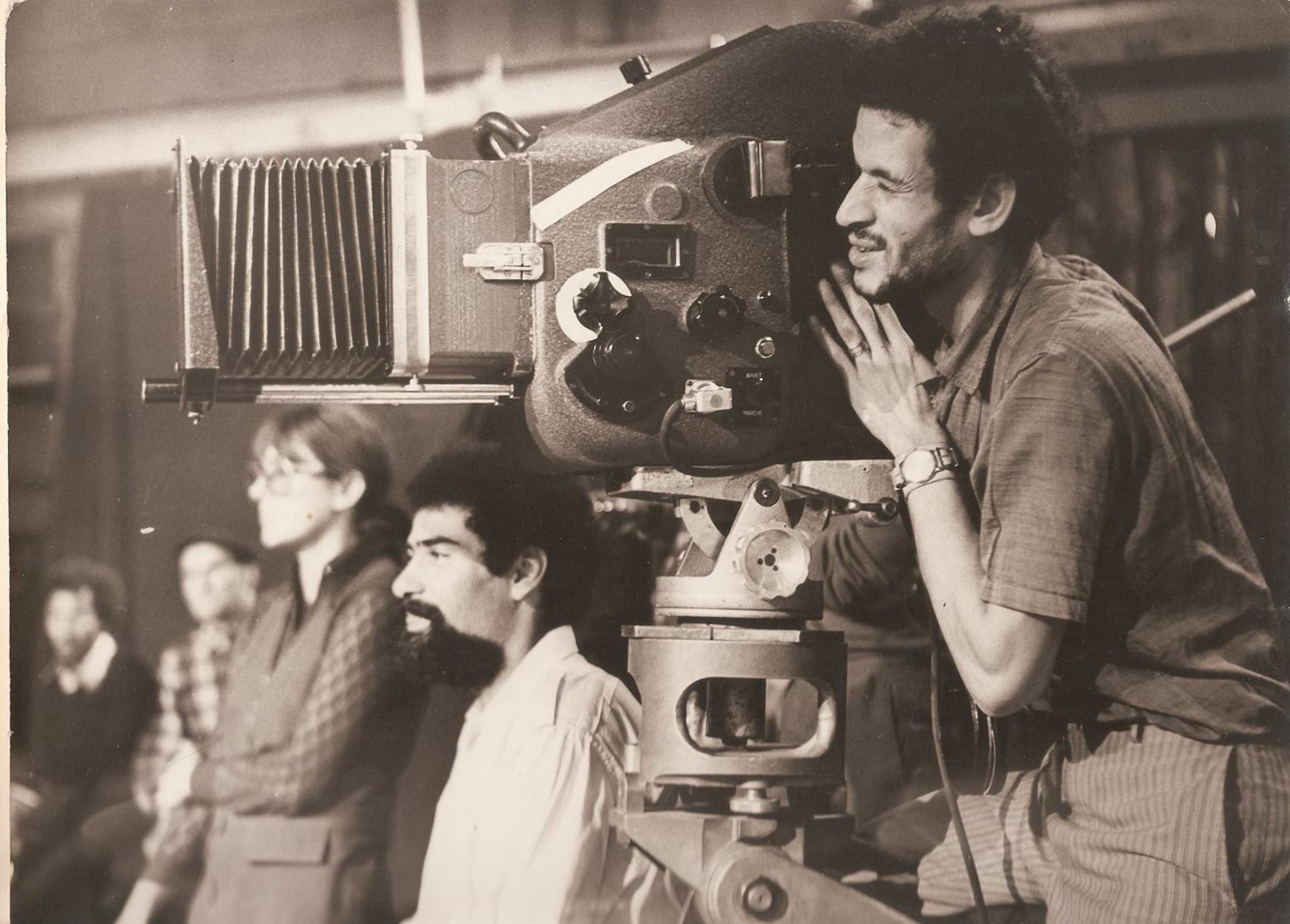Mostafa Derkaoui is a filmmaker and pioneer of modern Moroccan cinema, born in 1944 in Oujda, Morocco. He graduated from the Lódź Cinema School and lives in Casablanca.
Since returning to Morocco in 1972, he has continued the explorations he began in the student films he made in Poland, for a free and socially-engaged cinema that could contribute to both decolonial thought and the search for a Moroccan cinematic identity, and which would also encourage formal innovation and radicality.His avant-gardist vision was to come up against the official and repressive one of the 1970s Moroccan state (and of the remaining colonial institutions). His first film, De quelques événements sans signification [About Some Meaningless Events, 1974], made with a collective of Casablancan artists and intellectuals, was banned. It was later restored by the Filmoteca de Catalunya and L’Observatoire Art et Recherche in 2019.
A philosophy student in Casablanca in the early 1960s, Derkaoui was passionate about theatre, but one of his first plays was banned for political reasons during the period of repression of the far left and the opposition under Hassan II. He then left for France and spent a year studying at the Parisian film school, IDHEC. After a brief return to Morocco and the making of a first short film, “The Four Walls”, produced entirely independently and now lost, he went to study at the Łódź Film School in Poland along with his brother, cameraman and director Abdelkrim Derkaoui.
In Łódź, Derkaoui directed four short films, trying his hand at both documentary and fiction, and wrote a thesis on The role of cinema in transforming and elevating consciousness. He was also very active in political, theatrical and student life of the time, while supporting the struggles for democracy and the fight for human rights in Morocco. For his student film “Ludzie z piwnicy” [People from the Cellar], he went to Paris after May 1968 and filmed debates at the Estates General of Cinema. These images, which are now missing except for the extract used for his film, are among the rare filmed traces of these historic meetings.
Via: www.cinima3.com (by Léa Morin)
